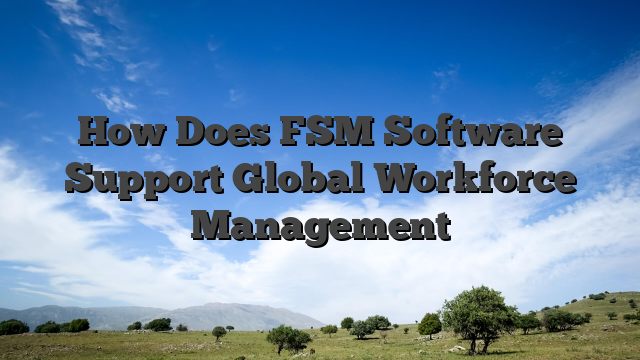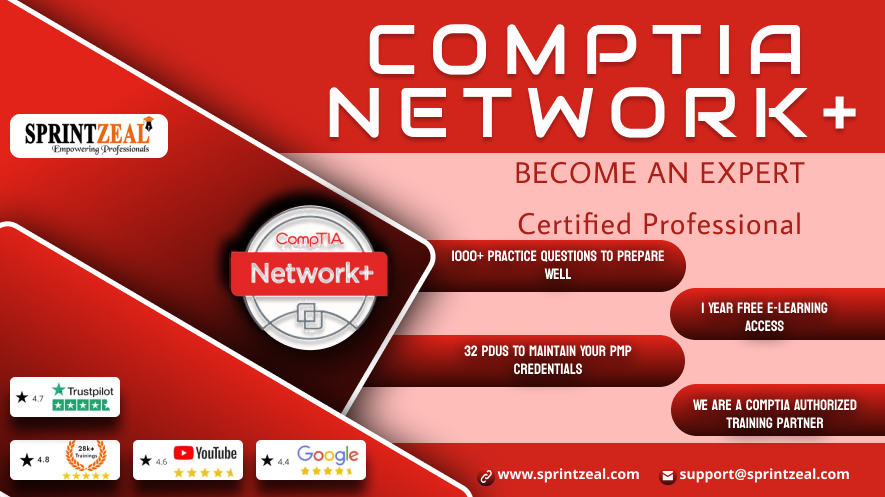Field Service Management (FSM) software stands as the backbone of modern workforce management, enabling seamless coordination and optimization of field operations across global landscapes. This software serves as a comprehensive platform designed to streamline and enhance the efficiency of remote workforce management.
FSM software is a digital solution that empowers businesses to manage field operations, dispatch resources, schedule tasks, and monitor activities in real-time. It enables companies to bridge the gap between their office and field teams, ensuring efficient communication, task allocation, and tracking.
B. Importance of FSM in Global Workforce Management:
- Enhanced Coordination and Efficiency:
- Seamless Communication: FSM tools facilitate real-time communication between field technicians. And office-based staff, ensuring quick and efficient exchange of information and task assignments.
- Optimized Workflows: By automating processes, FSM software enhances the efficiency of workflows, reducing manual errors and delays in service delivery.
- Improved Service Quality and Customer Satisfaction:
- Prompt Service Delivery: FSM solutions enable prompt response times and on-time service delivery by optimizing task assignments and resource allocation.
- Personalized Customer Experiences: Leveraging FSM tools allows for tailoring services to meet individual customer needs, thereby enhancing satisfaction and loyalty.
Advantages of FSM Software for Global Workforce Management:
A. Mobility and Remote Operations:
- Efficient Task Assignment:
- Optimized Resource Utilization: FSM software aids in assigning tasks based on workforce availability, skill sets, and proximity to job sites, minimizing travel time and optimizing resource allocation.
- Real-time Communication: It facilitates immediate communication between field agents and management, ensuring swift decision-making and problem resolution.
- Remote Access and Coordination:
- Global Reach: FSM solutions allow businesses to oversee and manage field operations across diverse geographical locations, ensuring seamless coordination irrespective of distances.
- Task Management: Real-time access to task assignments and updates enables field teams to efficiently manage and execute tasks regardless of their location.
B. Customer Experience Enhancement:
- Timely Service Delivery:
- Quick Response Time: FSM tools enable rapid response to service requests, ensuring prompt customer service irrespective of geographical locations.
- Personalized Service: Leveraging FSM software allows for tailoring services to meet individual customer needs, leading to enhanced satisfaction and loyalty.
- Streamlined Communication Channels:
- Real-time Updates: FSM solutions facilitate instant communication between field teams and customers, providing real-time updates on service status and expected arrival times.
- Customer Transparency: Customers appreciate the transparency offered by FSM tools, as they can track the progress of their service requests in real-time.
Improved Customer Experience through FSM Solutions:
Field Service Management (FSM) solutions play a pivotal role in transforming customer experiences by enabling businesses to deliver seamless and personalized services across diverse global landscapes.
A. Swift and Responsive Services:
- Prompt Issue Resolution:
- Efficient Problem-Solving: FSM software empowers field service agents to promptly address customer issues by providing real-time access to information and resources.
- On-time Service Delivery: By optimizing schedules and resource allocation, FSM ensures that services are delivered on time, enhancing customer satisfaction.
- Enhanced Communication Channels:
- Real-time Updates: FSM solutions facilitate instant communication between field teams and customers, providing real-time updates on service status and expected arrival times.
- Customer Transparency: Customers appreciate the transparency offered by FSM tools, as they can track the progress of their service requests in real-time.
B. Personalized Service and Customer Relationship Management:
- Tailored Services:
- Customized Solutions: Leveraging FSM software allows businesses to tailor services based on specific customer preferences and historical interactions.
- Consistent Service Quality: FSM tools enable field teams to access customer histories, ensuring consistency in service delivery and personalized experiences.
- Building Long-term Relationships:
- Improved Customer Engagement: FSM solutions aid in building stronger customer relationships by providing personalized, efficient, and reliable services.
- Increased Customer Loyalty: Enhanced customer experiences foster loyalty and positive word-of-mouth, contributing to long-term customer retention and advocacy.
Global Integration and Scalability of FSM Solutions:
Field Service Management Software are designed to seamlessly integrate into diverse business environments, catering to the needs of global operations while ensuring scalability and adaptability.
A. Adaptable to Multinational Operations:
- Scalability and Flexibility:
- Adaptable Infrastructure: FSM software offers scalable solutions that accommodate the varying needs of multinational organizations, irrespective of their size or complexity.
- Flexible Configurations: These solutions can be configured to align with specific business requirements. Offering tailored functionalities across different regions or business units.
- Integration Capabilities Across Diverse Environments:
- Interoperability: FSM solutions are designed to integrate seamlessly with existing enterprise systems. Such as CRMs or ERPs, ensuring smooth data flow and process synchronization.
- Cross-platform Compatibility: Whether on-premises or cloud-based. FSM tools offer compatibility across different platforms and devices, allowing for uniform usage in global settings.
B. Language and Cultural Considerations:
- Addressing Language Barriers:
- Multilingual Support: FSM software often provides multilingual interfaces and support, accommodating diverse linguistic needs within global teams.
- Cultural Adaptability: These solutions are developed with cultural nuances in mind, ensuring that interfaces and functionalities resonate well across different cultural settings.
- Accommodating Global Workforce Dynamics:
- Remote Accessibility: FSM solutions offer remote access capabilities, enabling field teams across the globe to access and utilize the software efficiently.
- Training and Support: Comprehensive training and support services cater to global teams, ensuring consistent usage and understanding of FSM tools across diverse regions.
Read More – How To Manage Customer Flow with Appointment Scheduling
Analytics and Performance Monitoring in Global Workforce Management:
Field Service Management System offer robust analytical tools that empower organizations to monitor, assess, and optimize workforce performance on a global scale, facilitating data-driven decision-making and continuous improvements.
A. Data-Driven Decision-making:
- Strategic Insights from Analytics:
- Performance Metrics: FSM software generates comprehensive performance metrics and key performance indicators (KPIs), providing valuable insights into workforce efficiency, service quality, and resource utilization.
- Predictive Analytics: Advanced analytics within FSM tools enable predictive modeling, allowing organizations to foresee trends, anticipate service needs, and plan resource allocation proactively.
- Optimizing Workflows:
- Process Efficiency: Analyzing workflow data helps identify bottlenecks and inefficiencies in global operations, facilitating process optimization and streamlining of workflows.
- Resource Allocation Optimization: Insights derived from analytics aid in strategically allocating resources, ensuring optimal workforce utilization across different regions.
B. Performance Evaluation and Continuous Improvement:
- Monitoring Global Performance:
- Comparative Analysis: FSM analytics enable organizations to conduct comparative analyses of mobile workforce management across different regions or teams, identifying best practices and areas for improvement.
- Real-time Monitoring: Real-time monitoring capabilities allow instant tracking of field operations, ensuring adherence to standards and service level agreements (SLAs) globally.
- Implementing Improvements based on Insights:
- Continuous Feedback Loop: FSM solutions facilitate a continuous feedback loop by leveraging analytics. To implement iterative improvements in global workforce management strategies.
- Adapting to Changing Dynamics: Organizations can adapt swiftly to changing market dynamics. And customer demands by using performance insights to modify strategies and operations.
The robust analytical capabilities offered by FSM solutions empower organizations to make informed decisions, optimize workflows, and foster a culture of continuous improvement in global workforce management, thereby driving efficiency, enhancing service quality, and ensuring sustained success.




